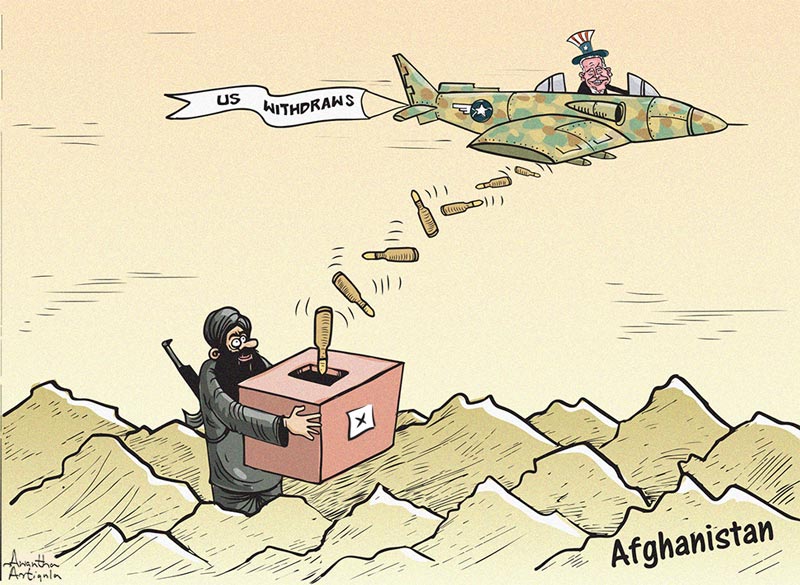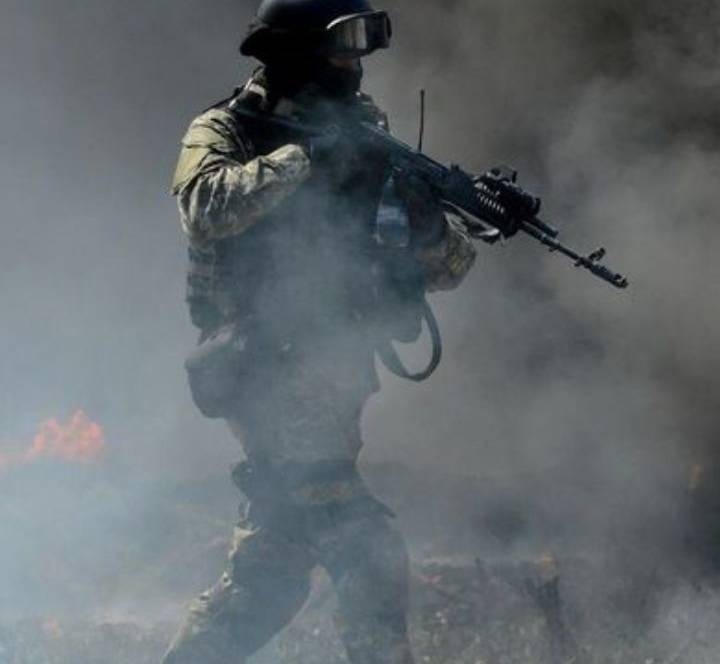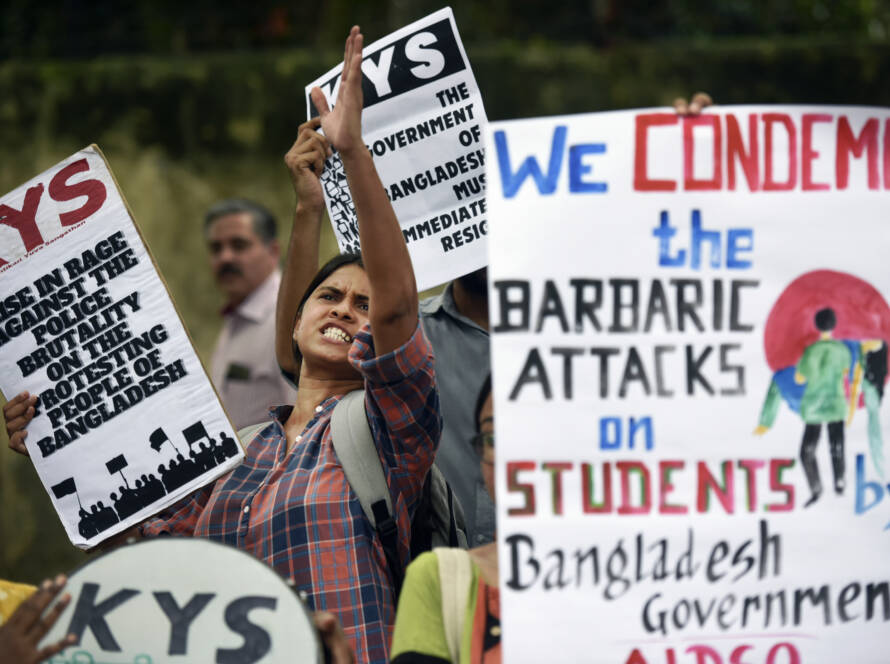By Adnan Rehmat from Islamabad and Omar Rajarathnam from Colombo
Not all military interventions in modern times have happy endings, but the climax currently playing out in Afghanistan has an unprecedented twist. The country is at imminent risk of undoing its state-building gains of the last twenty years as a representative polity aligned with the democratic bent of the rest of South Asia of which it is a member. This is less because of the inevitable withdrawal of the American military machine by 9/11/2021 and more because Pakistan is seemingly discounting its differences with the US through a newfound camaraderie centered on the push for a new strategic relationship to present Taliban as a political alternative against the will of the people of Afghanistan.

This is troubling as it may likely result in Asia’s first militancy-led government as the starkest of outcomes of what is now historically America’s longest and most expensive war ever – to ironically bring to power the same force it set out to dislodge – the Taliban – for harbouring Osama bin Laden. This was also a war, fought in close concert between the US and Pakistani militaries whose bloody fallout Pakistan claims cost the lives of over 70,000 of its own citizens.
This week, the top US military officer, General Mark Milley, addressing a Pentagon news conference professed that the Taliban have ‘strategic momentum’ and not ruling out a complete Taliban takeover of Afghanistan. Now that, according to him, the much loathed and feared group controls half of Afghanistan’s 419 districts. Milley, however, did not substantiate his assertions. Nor does Pakistan whose foreign and interior ministers last week drew derision from the country’s active social media sphere over the desirability of Taliban Mark 2.0, who they both termed as now “civilised men in simple dress” projecting their imminent return to power on the back of “key gains on the battlefield”.
The unusual US-Pakistani alliance is systematically using media to glorify the Taliban’s still yet unsubstantiated battlefield advances despite being unable to independently verify claims of sporadic Taliban takeovers of Asia’s most militancy-torn nation. After all the major Afghan cities – Kabul, Kandahar, Jalalabad, Herat and Mazar-e-Sharif are all in firm control of the legitimately elected Ashraf Ghani government.
The generally manipulated Pakistani legacy media last week carried interviews of at least three Taliban spokesmen intended to increase their acceptability in Pakistani society as a political fait accompli. While the mainstream European and Asian media is providing no independent verification of Taliban’s military ascendancy either, American and Pakistani media seem to be the only world media projecting Taliban as poised to takeover Kabul. This selective framing appears to justify post-withdrawal Afghanistan which will – if current diplomatic soundbites from Washington and Islamabad are to be believed – come into the hands of the Taliban sooner rather than later. This is the same group both want installed to power without any political settlement that they both used force to dislodge when US invaded two decades ago using the logistical air and land routes of Pakistan.
The regional political fallout of the policy to bring Taliban back to power has already begun. Pakistan’s US-aligned policy on the future of Kabul has irked China, which otherwise uses any opportunity to glorify Sino-Pakistani friendship. When foreign ministers of the Shanghai Cooperation Organization (SCO) – Afghanistan contact group met in Tajikistan in July, China’s Foreign Minister Wang Yi was uncharacteristically upset terming US and NATO troops withdrawal ‘hasty’ adding that ‘US cannot simply walk away’ despite being the ‘initiator of the Afghan issue and [now] dump the burden on regional countries [including China].’ Yi was Beijing’s need to prevent US and its regional allies going solo and ignoring a solution ‘that serves the common interests of Afghanistan and other countries in the region.’
Additionally, Beijing’s patience with Islamabad is starting to wear thin as it sees itself becoming a major victim of being sidelined by Pakistan and US. A terroristic attack on a bus full of Chinese workers near the Pakistan border with China last week that saw at least eight Chinese killed, is seen as a measure of things to come that Beijing is concerned about. Pakistani foreign minister and top intelligence chief rushed to Beijing this week to firefight a snowballing chill in relations.
Another key player in the Afghan scenario is Saudi Arabia by closely aligning itself with the US-Pakistan direction. An unusually large number of meetings on Afghanistan and Taliban have been held among the three in the last few months. Islamabad and Riyadh, it may be recalled, were two of only three world capitals that recognized the first Taliban government until the US invasion ousted it in 2001. The troika seem to be gearing to align strategies on according any possible future Taliban government through similar diplomatic recognition, which this time is coming even before Taliban are in power! Along with Washington, Riyadh is reportedly firming up economic support plans for both Kabul and Islamabad in lieu of regime change in Afghanistan.
In the South Asian context, perhaps the biggest surprise is the absence of any regional role in approaching a desirable future of its member Afghanistan. As a countermeasure to Pakistani intransigence on bilateral issues, India has snubbed the South Asian Association for Regional Cooperation (SAARC), which could have played a key role in providing a post-US and NATO future for Afghanistan in sync with what its people want and in line with South Asia’s generally democratic order rather than what Washington and Islamabad desire. And yet India remains conspicuous by its relative silence on what is happening in Afghanistan. One explanation is that India is quietly supportive of the US-Pakistan-Saudi plans for Afghanistan as it helps counter China’s strategic aspirations in the region. Any political future that sidelines China in the region serves Indian interests as well.
It is unsettling that a South Asian solution for Afghanistan is not on the table which can only negatively impact the interests of the world’s most populous region as a distinct political and economic collective. The ‘big boys’ of South Asia – Pakistan and India – seem uninterested in ensuring that any economic benefits and opportunities accruing from post-withdrawal Afghanistan also bring Sri Lanka, Bangladesh, Nepal, Bhutan and the Maldives into a virtuous economic cycle. Islamabad and New Delhi will be the principal beneficiaries of any East-West energy and trade corridors, already in the pipeline for years and only awaiting a ‘stabilised’ Afghanistan, that link Central Asia – through Afghanistan – and South Asia.
Politically also this is a problem. The exclusive Pakistan-US coalition on Kabul can seriously disturb foreign policy strategies of smaller but important regional countries like Sri Lanka which fought a militant group for three decades that held the country’s economic rise hostage. Sri Lanka’s Rajapaksa administration defeated the Liberation Tigers of the Tamil Eelam (LTTE) regardless of pressures from many members of the international community which housed significant Tamil diasporas. This kind of local solution is now being denied to Afghanistan where external solutions can only potentially serve to perpetuate the country’s miseries. Militant groups – whether in Sri Lanka, Pakistan, India or Afghanistan – cannot become the arbiters of political destinations of South Asian nations.
President Ashraf Ghani heads a legitimate government off the back of a representative parliament and thriving civil society seeking social development and political stability. This democratic system needs to be supported, not subverted. Without a political settlement – such as first making Taliban register as a legal political party that gets a chance at lobbying with the Afghan citizens to support it in the next elections through votes and thereby earning real legitimacy – the attempt to impose yet another unpopular foreign solution is counterproductive and unfair. Bullets must give way to ballots. Afghanistan and South Asia deserve better through recourse to a non-militant inclusive democratic order. The time for empires in the region is over.
Disclaimer – Factum is a Sri Lanka based think-tank providing international relations analysis and public diplomacy consultancies in Sri Lanka and Asia. Visit – https://factum.lk


